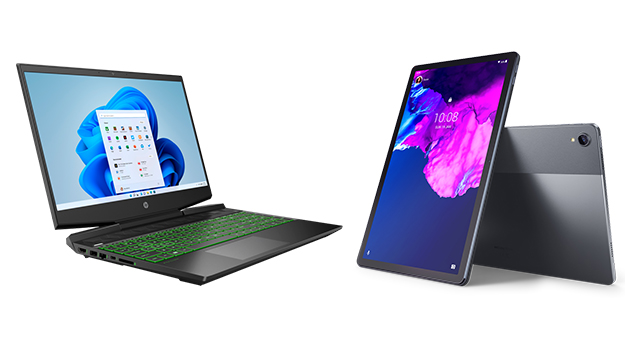- How to Choose Running Shoes for Different Terrains - January 2, 2024
- Improving Your Running Form: A Guide for Beginners - January 2, 2024
- The Science Behind Cushioning in Running Shoes - January 2, 2024
Last Updated on
The modern digital world is ever-evolving and frequently asks us to make decisions about the latest devices available. Laptops and tablets are two of the most commonly used gadgets, so it’s important to understand how these two devices work and what sets them apart from each other. We’ll explore the differences between laptop vs tablet, examining their design, performance, storage capacity, software, battery life, size, input methods, and cost. By the end of this article, you’ll be equipped to make an informed decision regarding which type of device is right for you.
Types of Laptops:
Laptops come in a variety of sizes and configurations, from traditional clamshell models to ultra-portable ultrabooks and 2-in-1 hybrids that can switch between laptop and tablet modes. Some laptops are designed for gaming or graphics work while others are optimized for basic computing tasks like web browsing and streaming media. These days most laptops use Intel processors with integrated graphics chipsets and a windows operating system, although some high-end models offer discrete GPUs for superior performance and processing power when gaming or editing photos and videos that can compete with desktop computers.
Types Of Tablets:
Tablets are slim, lightweight devices that offer touchscreen displays ranging in size from 7 to 12 inches or more. Most tablets run on the Android platform, although some models available from Apple feature its iOS operating system. Tablets typically have long battery life and can use a variety of apps for productivity or entertainment purposes. Some tablets are designed for casual users while others come with powerful processors and support for accessories like keyboards, styluses, and even game controllers.
Laptop vs Tablet: Comparison
When considering whether to buy a laptop or tablet, it’s important to consider how you plan on using your device most often. Generally speaking, laptops offer more power and functionality than tablets, which makes them ideal for activities like video editing or gaming. On the other hand, tablets are much more portable and often cheaper than laptops, making them a better choice for on-the-go use.
Performance:
When it comes to performance, laptops tend to be powerful machines capable of handling intensive tasks like photo and video editing as well as gaming, especially because a laptop has a physical keyboard. Tablets, on the other hand, are generally not as powerful but still adequate for web browsing, streaming media, and basic computing tasks when you have an external Bluetooth keyboard that comes with it.
Storage Capacity:
Laptops typically offer larger storage capacities than tablets due to their size – they can also have multiple drives such as an SSD or HDD. Tablets come with limited onboard storage, although some models offer the option to expand via SD cards or USB drives.
Software:
When it comes to software, laptops tend to have more options than tablets as they are usually running the full version of an operating system like Windows or macOS. Tablets typically run mobile versions of their respective platforms, such as Android and iOS, which have fewer features and less functionality than the full versions available on laptops.
Battery Life:
When comparing laptop vs tablet, the latter generally offer better batteries than laptops due to their smaller size and lower power requirements – they can also be used while charging, unlike most laptops, even up to ten hours. However, if you plan on using your device for intensive tasks like gaming or editing, then a laptop is probably the better option.
Size:
When it comes to size, laptops are generally larger than tablets due to their traditional clamshell design and larger screens. This makes them heavier and less portable, although some models such as ultrabooks and 2-in-1s can be quite thin and light. Tablets, on the other hand, typically range from 7 to 12 inches in size and can be easily carried around in a bag or purse.
Input Method:
Laptops usually feature keyboards for inputting text while tablets rely on touchscreens or virtual keyboards – this means that typing on a tablet can be more of a challenge unless you pair it with an external keyboard.
Cost:
When it comes to cost, laptops tend to be more expensive than tablets due to their higher power and larger storage capacities. Tablets are generally much cheaper but still offer a good range of features for basic tasks like web browsing or streaming media.
You should choose a laptop if:
You need a device that can handle intensive tasks such as editing or gaming, you want the full version of an operating system with access to all its features, or you need large amounts of internal storage space.
You should choose a tablet if:
You need a portable device for on-the-go use, you don’t require intense performance levels, or you want to save money. Tablets are also great for casual use such as web browsing, streaming media, and basic computing tasks.
In conclusion, both laptops and tablets have their advantages and disadvantages depending on how they will be used. If you need a powerful machine that can handle intensive tasks then a laptop is probably the better option, but if you’re looking for something more portable and cost-effective then a tablet might be the way to go. Ultimately it comes down to personal preference, so consider your needs before making a decision.

